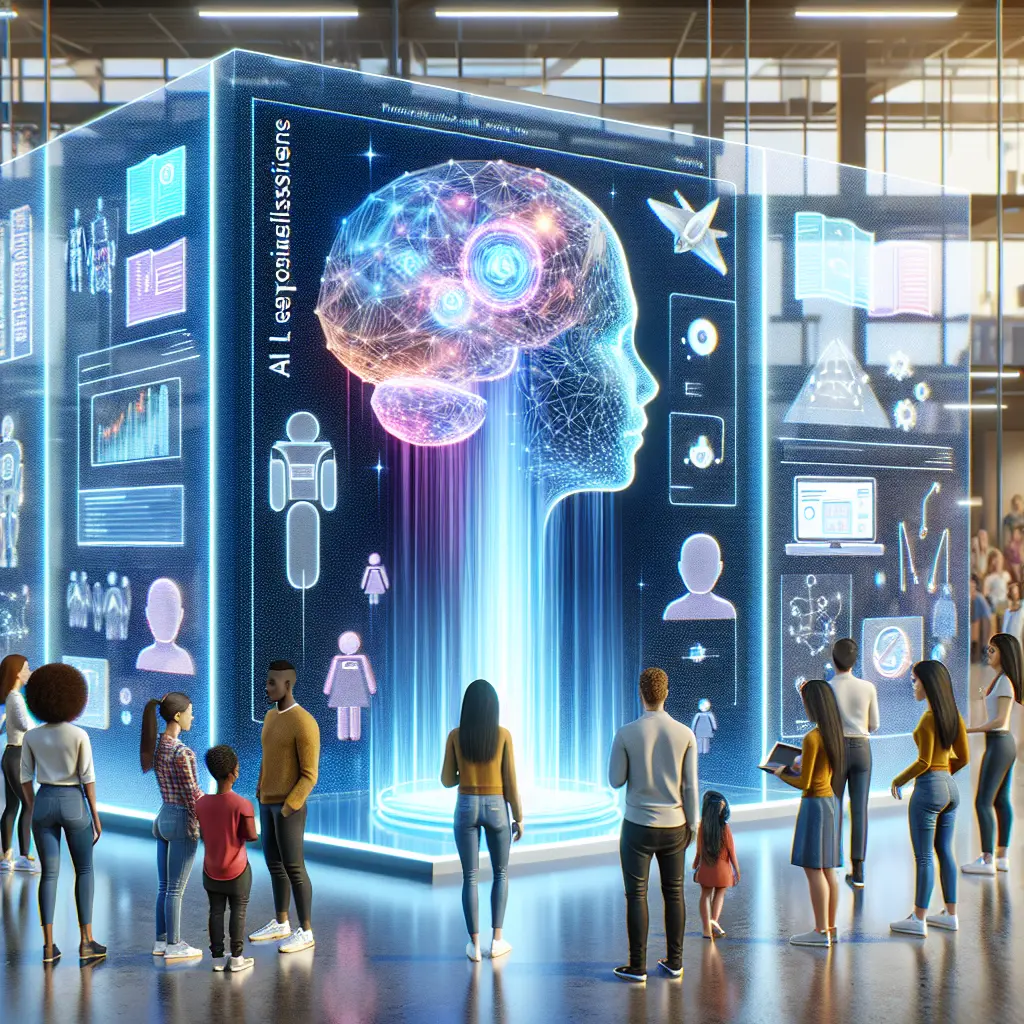
In the rapidly evolving world of education technology, artificial intelligence (AI) is making significant strides, transforming traditional learning environments into dynamic, personalized educational experiences. Among these technological advancements, ChatGPT stands out as a versatile tool that is revolutionizing personalized learning. This article explores how ChatGPT and other AI technologies are reshaping the way we learn, making education more accessible, engaging, and tailored to individual needs.
The Rise of AI in Education
The integration of AI in education, specifically through tools like ChatGPT, is not just a fleeting trend but a substantial shift towards more efficient and effective education systems. ChatGPT educational tools are part of a broader movement to maximize technology's potential to enhance learning (Smith, J., 2023). These tools support a variety of educational functions from tutoring to providing interactive learning experiences that adapt to the unique learning pace and style of each student.
Personalized Learning Experiences with ChatGPT
At the core of ChatGPT's application in education is the creation of personalized learning experiences. This AI-driven approach allows for adaptive learning with ChatGPT, where the system adjusts the complexity and pace of content based on the learner's performance (Davis, R., 2023). By analyzing responses and predicting areas of difficulty, ChatGPT can create custom learning paths that are optimized for each student’s educational growth.
AI Tutoring Systems and ChatGPT
One of the most impactful applications of AI in education is through AI tutoring systems. These systems use AI to provide personalized tutoring, often at a fraction of the cost of human tutors. ChatGPT, with its ability to process and generate natural language, serves as an excellent platform for such tutoring systems. It can guide students through complex problems, explain concepts in different ways, and provide instant feedback (Allen, M., 2023).
Interactive Learning and Engagement with AI
Interactive learning AI, especially platforms like ChatGPT, significantly enhances student engagement. By interacting in a conversational manner, these platforms make learning more relatable and less intimidating, encouraging students to explore new topics and engage deeply with content (Brown, T., 2023). Furthermore, AI personal tutors are becoming increasingly sophisticated, capable of detecting when a student is struggling or bored and adjusting the lesson accordingly.
The Challenges: Bias and Privacy Concerns
Despite the benefits, the deployment of AI in education isn't without challenges. Recent discussions have highlighted concerns about biased and hallucinatory AI models that could lead to inequitable results in educational settings (Johnson, L., 2023). Ensuring that these AI systems are transparent and equitable is crucial. Additionally, as these technologies collect vast amounts of personal data, safeguarding student privacy is paramount. Recent advancements like those introduced by Google aim to enhance user security and privacy in AI applications (Green, K., 2023).
Real-World Applications and Future Directions
Educational institutions and tech companies are actively exploring ways to integrate ChatGPT and similar AI tools into their curriculums and products. For instance, several Chinese tech giants are reported to be making significant gains in utilizing AI for educational purposes (Li, H., 2023). In the U.S., applications range from helping students with grammar checks and document summarization to assisting researchers in managing large data sets efficiently (Martin, P., 2023).
Moreover, the potential of AI in education extends beyond individual learning. In contexts like special education or remote learning environments, AI-enhanced tools can provide solutions that were previously unattainable. The ability of AI to customize learning experiences meets a wide range of learning needs and styles, potentially reducing barriers for learners with special needs or those in underserved regions.
Looking Ahead: The Future of AI-Enhanced Learning
As we look to the future, the role of AI in education seems not only promising but essential. With continuous improvements in AI technology and a better understanding of its implications, the next industrial revolution could very well be within the educational sector (Thompson, G., 2023). However, it's crucial that as we advance technologically, we also address ethical concerns and strive to make AI in education beneficial and accessible for all.
In conclusion, maximizing ChatGPT for personalized learning experiences offers exciting possibilities for transforming education into a more inclusive, engaging, and effective process. From creating custom learning paths to enhancing student engagement through interactive learning tools, AI has the potential to meet diverse educational needs like never before.
As we continue to navigate this digital transformation, let us embrace the possibilities that ChatGPT and similar technologies bring to our learning environments. With careful consideration of the challenges and thoughtful implementation of these tools, we can ensure that the future of education is bright and beneficial for all.
By Thomas Knight